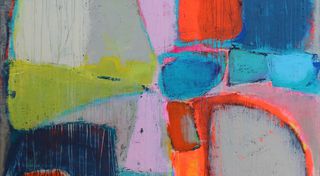

Biography
Cândido Portinari (1903–1962) is one of the most important Brazilian artists of the 20th century, renowned for his social engagement and his central role in the neorealist movement. Born on December 29, 1903, on a coffee plantation in Brodowski, São Paulo State, he was the son of modest Italian immigrants. From an early age, he showed exceptional artistic talent, and at the age of 15, he moved to Rio de Janeiro to study at the Escola Nacional de Belas Artes. In 1928, he won the European Travel Prize, allowing him to live in Paris, where he was exposed to Cubism, Expressionism, and Italian Renaissance frescoes—strong influences that would shape his distinctive style.
Portinari created more than 5,000 works, ranging from small sketches to monumental murals. Among his most iconic creations are the massive panels Guerra e Paz (War and Peace, 1952–1956), which were gifted to the United Nations in 1956. These paintings, each measuring approximately 14 x 10 meters, depict the duality of conflict and harmony, and reflect his commitment to social justice. Before their installation in New York, the works were exhibited at the Theatro Municipal in Rio de Janeiro in the presence of President Juscelino Kubitschek.
His art is deeply rooted in Brazilian reality, shedding light on rural workers, children, refugees, and scenes of daily life. Paintings like O Lavrador de Café, Os Retirantes, and Criança Morta convey his deep concern for social inequality and human suffering. Despite declaring himself an atheist, Portinari also explored religious themes, notably in the frescoes of the Capela da Nonna in Brodowski.
Portinari received numerous international accolades, including the Carnegie Prize in 1935 for his painting Café (1934), making him the first modernist Brazilian artist to achieve international recognition. He was also awarded the Légion d'Honneur in 1946 and the Guggenheim Prize in 1956 for Guerra e Paz.
He died on February 6, 1962, from lead poisoning caused by prolonged exposure to toxic pigments. His legacy is preserved through the Museu Casa de Portinari in Brodowski—his childhood home turned into a museum—and through the Projeto Portinari, led by his son João Candido Portinari, which is dedicated to preserving and promoting his work.
Nationality




